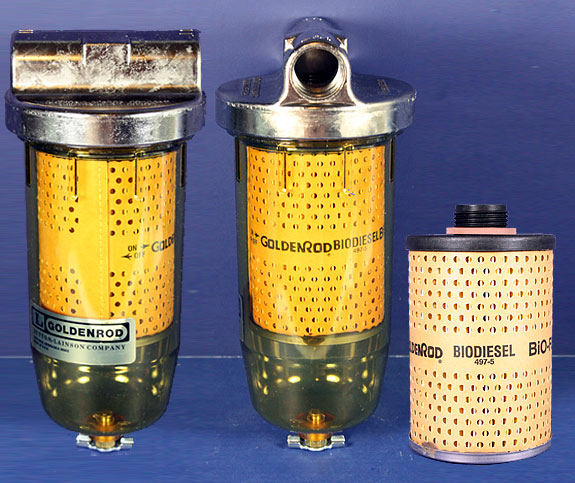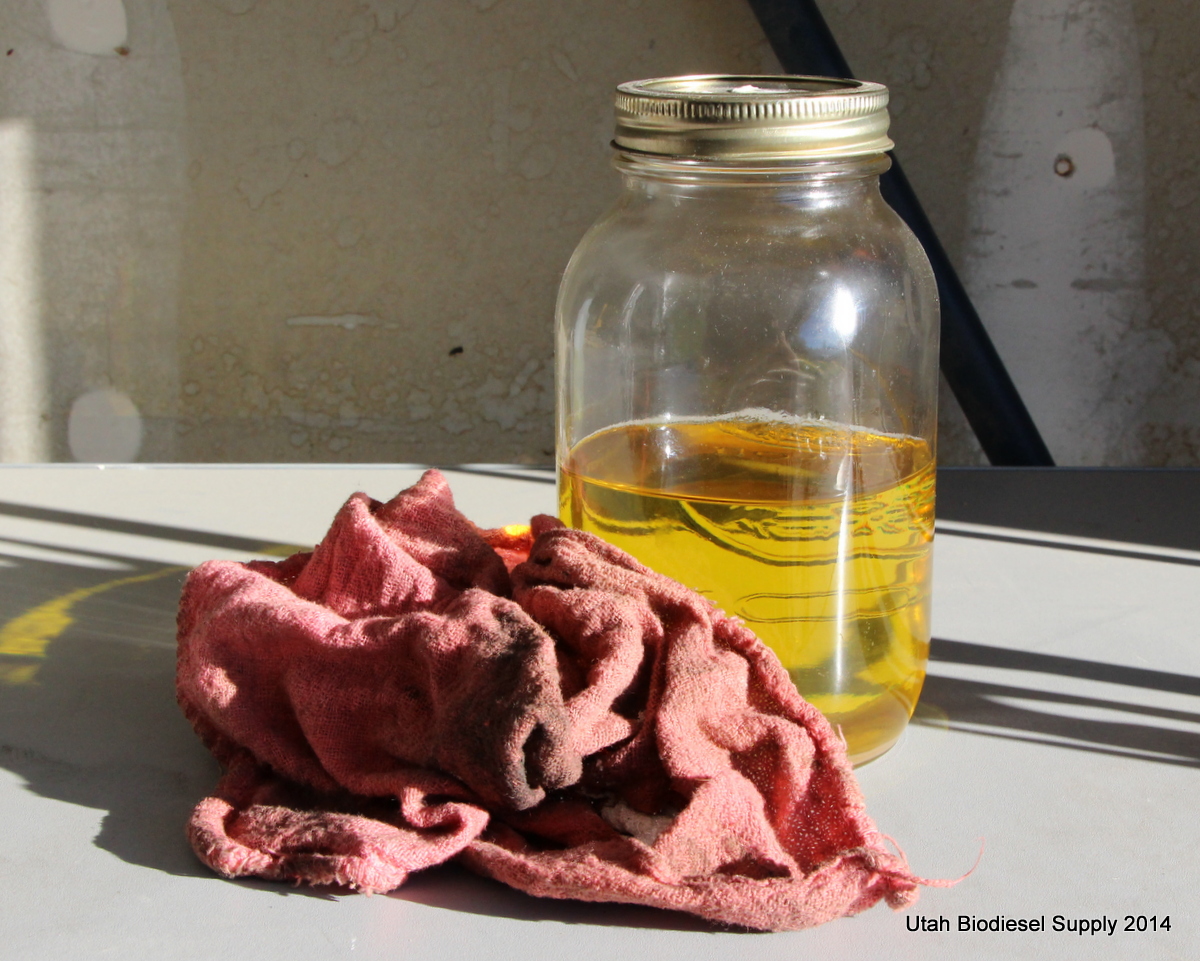Spills and messes are just part of collecting oil and making Biodiesel. No matter how clean you try to be or how conscientious you are, sooner or later you’ll have a spill and chances are you’ll be cleaning up a part of that spill with a rag.
So, now that you’ve cleaned up the spill you have an oily rag on hand, or in some cases LOTS of oily rags. If you’ve been doing Biodiesel or a while, chances are you probably have lots of them laying around–and chances are with the summer heat coming, you could have a big safety issue on your hands if they’re not properly stored or disposed of. The safety issue I’m referring to is something called spontaneous combustion.
Spontaneous combustion, as defined by wikipedia, is a type of combustion that occurs by self heating followed by a thermal runaway and finally an ignition. Or in otherwords, something gets really hot by itself and then ignites.
In the case of Biodiesel, we’ve seen this type of thing happen with oily rags that were soaked in vegetable oil. The rags are either thrown together in a garbage can or left out in the open. When the room temperature rises to a certain point and enough oxygen is in the air, the rags can begin to self-heat and break down (the oil starts to “oxygenate” and starts to generate heat). Given enough time and heat, the rag can actually ignite and catch on fire. If the rag is in the immediate vicinity of something flammable (say a trash can full of paper or sawdust), it can cause a fire pretty fast.
A few examples:
Recently a customer of ours left a simple oily rag in his beautiful shop. The shop housed 3 BioPro Processors, a few mint-condition vintage Mercedes Diesels, holding tanks with oil, finished Biodiesel, and a lot of other really valuable things that don’t do well in a fire. Well, as chance would have it, the oily rag got hot enough that it caught fire and then lit the surrounding area on fire….and then the shop caught fire along with everything else in there with it. While the fire department was called and a valiant effort was expended to try & extinguish the blaze, the building unfortunately burned to the ground and everything in it was a complete loss. Yes. Even all of his vintage Mercedes.
Another recent example involves a tanker truck at a commercial biodiesel plant. When the truck was parked, someone mistakenly left an oily rag near one of the large drive wheels at the back. After the day was done and everyone went home that lone rag heated up hot enough to ignite. The small rag eventually lit the tire on fire, which then lit the rest of the truck on fire and in the end the really expensive tanker truck was a complete loss.
If you look around the Biodiesel internet forums, you’ll find story after story of spontaneous combustion destroying literally thousands of dollars of equipment and hardware (plus lots of oil, biodiesel, and methanol too!). And all because of an oily rag left in the wrong place.
Other items that can spontaneously combust are spent wood chips soaked in oil or Biodiesel left in an open container. This type of fire in particular can be fairly dangerous because once it starts, it has an immediate source of fuel to burn through and can be difficult to extinguish.
As recently as today we even heard from a customer that had wrapped an old Golden Rod Fuel Filter element in a rag and put it in a cup and forgot about it only later to find it smoking and ready to ignite.

So, to help you play it safe, here’s a few tips & tricks for keeping spontaneous combustion at bay in your shop.
1) Dispose of oily rags in a metal container with a sealed lid. Preferably keep the container in an area away from anything flammable (ie. outside away from a building is a good choice).
2) Dispose of oily wood chips in a sealed plastic bag and then place them in a fire resistant container such as a metal drum. Like above, keep the drum away from flammable materials.
3) Don’t place oily rags or spent wood chips in direct sunlight or in extremely hot area’s. Sun = heat = good way to get self-heating going = spontaneous combustion.
4) If you plan on washing your oily rags, store them in a safe, sealable container where oxygen isn’t able to get to them (ie. metal 5 gallon sealable pail works great)
5) Play it safe & dispose of any oily rags in your brewing area as soon as possible.
On #5, I personally will just throw out an oily rag instead of trying to use it again or leaving it hanging around. For $5.00, you can usually pick up a whole pack of new rags from your local auto parts store or even from Walmart. Getting rid of those rags could not only keep spontaneous combustion at bay but that $5.00 investment in new rags could save you literally thousands of dollars in savings by keeping a fire at bay.
So, now that you know about this nasty little fire starter, your challenge is to go check out your shop & get rid of any oily rags you have laying around in a safe manner. It could mean the difference between keeping all of your equipment or watching it literally go up in flames.
Keep it safe & brew on!
– Graydon
